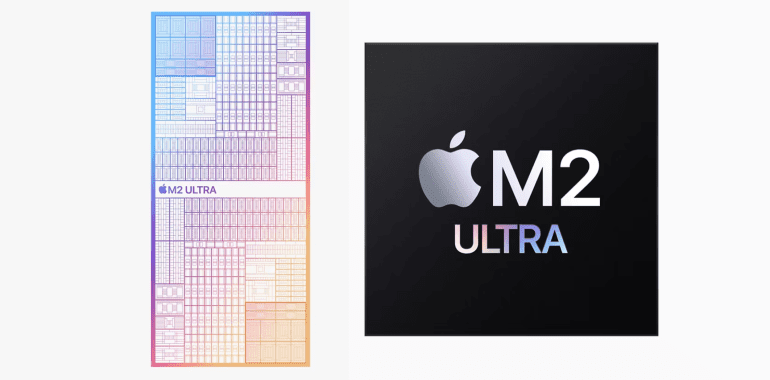- Apple is integrating M2 Ultra chips into cloud infrastructure for AI processing.
- Initial plans for custom chips have shifted to utilizing existing processors for security and privacy.
- Deployment spans Apple’s data centers and extends to third-party servers.
- Despite competitors’ advancements, Apple is steadily progressing in AI research.
- The M4 chip’s neural engine heralds a new era of AI excellence for Apple.
Main AI News:
Apple is embarking on a strategic journey into the realm of generative AI, setting its sights on leveraging the prowess of M2 Ultra chips within cloud infrastructure. Bloomberg unveils Apple’s blueprint to harness the computational might of M2 Ultra chips housed in data centers, relegating intricate AI queries to these advanced processors, while reserving simpler tasks for device-based processing. This bold move marks a pivotal step for Apple, signaling its intent to delve deeper into the domain of artificial intelligence.
As reported by The Wall Street Journal, Apple’s ambitious endeavor, codenamed Project ACDC (Apple Chips in Data Center), initially aimed to craft custom chips tailored for data centers, prioritizing security and privacy. However, a strategic shift has ensued, with Apple now deeming its existing processors equipped with robust security and privacy features adequate for the task at hand. This strategic pivot underscores Apple’s commitment to efficiency and innovation, leveraging its existing technological prowess to navigate the evolving landscape of AI.
The deployment of these cutting-edge chips will span Apple’s extensive network of data centers, extending eventually to servers operated by third-party entities. With a robust infrastructure already in place, including its sprawling server network across the United States and ongoing endeavors such as the development of a new center in Waukee, Iowa, Apple is poised to scale its AI capabilities rapidly.
Despite not matching the rapid strides made by competitors such as Google, Meta, and Microsoft in the realm of generative AI, Apple has been steadily advancing its AI research initiatives. December witnessed the unveiling of MLX, a machine learning framework engineered to optimize AI model performance on Apple silicon. Furthermore, Apple has been at the forefront of pioneering research shedding light on the future trajectory of AI integration across its product ecosystem, with tantalizing glimpses into potential upgrades for flagship offerings like Siri.
In heralding the advent of its latest innovation, the M4 chip, Apple underscores its unwavering commitment to AI excellence. With a cutting-edge neural engine touted as “an outrageously powerful chip for AI,” Apple reaffirms its position as a trailblazer in the realm of artificial intelligence, poised to redefine the boundaries of innovation in the digital era.
Conclusion:
Apple’s strategic move to deploy M2 Ultra chips in cloud-based AI processing signifies a significant leap forward in its AI capabilities. By leveraging existing infrastructure and prioritizing efficiency, Apple is poised to maintain its competitive edge in the AI market. This strategic shift underscores Apple’s commitment to innovation and positions the company as a formidable force in shaping the future of artificial intelligence.

